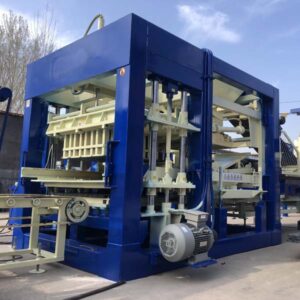
The construction industry stands at the cusp of a remarkable transformation, thanks to the advent of new brick making machinery that is redefining the way bricks are manufactured.
Traditional brick production methods have long been associated with time-consuming processes, high labor costs, and inconsistent quality.
However, recent advancements in technology have led to the development of cutting-edge brick making machinery that not only boosts efficiency but also enhances the quality of the final product.
This essay explores how these innovative machines are revolutionizing the construction landscape and the implications of this transformation for the industry.
Advances in Automation and Efficiency
One of the key drivers behind the revolution in brick manufacturing is the integration of automation into the production process.
Traditional brick making often required a significant workforce to manually mold, shape, and fire bricks, leading to prolonged manufacturing timelines and increased expenses.
The introduction of automated brick making machinery has drastically changed this scenario. State-of-the-art machines are now capable of performing tasks such as raw material preparation, mixing, molding, and even firing with minimal human intervention.
Automated brick making machinery follows precise algorithms and parameters, ensuring uniformity in size, shape, and texture of the bricks.
This level of consistency is a significant departure from the variability inherent in traditional manual production methods.
As a result, construction projects can rely on bricks that fit seamlessly together, reducing the need for extensive adjustments and improving overall structural integrity.
Enhanced Quality Control and Consistency
The quality of bricks has always been a crucial factor in construction projects.
Inconsistent brick dimensions and subpar material composition can lead to structural weaknesses, compromising the safety and longevity of buildings.
With new brick making machinery, quality control has reached new heights.
These machines incorporate sensors and monitoring systems that track various parameters during the manufacturing process, including moisture content, compression strength, and dimensional accuracy.
Any deviations from the predefined quality standards trigger real-time adjustments or alerts, ensuring that only bricks meeting the strictest criteria proceed to the final stages of production.
This meticulous quality control mechanism minimizes the risk of using defective bricks in construction and contributes to safer and more durable buildings.
Sustainability and Eco-Friendly Practices
In an era marked by heightened environmental awareness, sustainable practices have become paramount across industries, including construction.
Traditional brick firing methods often relied on energy-intensive processes, leading to a substantial carbon footprint.
The emergence of eco-friendly brick making machinery addresses this concern by employing innovative techniques that reduce energy consumption and environmental impact.
Some of these advancements include the utilization of alternative fuels, such as biomass or industrial waste, in brick firing kilns. Additionally, new machinery designs incorporate energy-efficient technologies like heat recovery systems, allowing the recycling of excess heat generated during the firing process.
These eco-conscious practices not only contribute to a greener planet but also position construction companies as responsible corporate citizens.
Impact on the Construction Industry
The integration of new brick making machinery into the construction industry has far-reaching implications.
Firstly, the enhanced efficiency of these machines accelerates the brick manufacturing process, resulting in shorter project timelines.
Construction companies can meet deadlines more effectively, reduce labor costs, and allocate resources more efficiently.
Secondly, the improved quality control ensures that the bricks used in construction are of consistently high quality, leading to safer and more durable buildings.
This, in turn, can lead to reduced maintenance costs and increased customer satisfaction, as structures stand the test of time with minimal deterioration.
Thirdly, the adoption of eco-friendly brick manufacturing practices aligns construction companies with sustainability goals and regulatory requirements.
This not only enhances their reputation but also opens doors to projects that prioritize environmentally conscious practices.
The construction industry is undergoing a remarkable transformation, driven by the introduction of new brick making machinery that enhances efficiency and quality.
The integration of automation, stringent quality control measures, and eco-friendly practices has revolutionized the manufacturing process, resulting in bricks that are more uniform, durable, and environmentally responsible.
As the industry continues to evolve, these innovations pave the way for safer, greener, and more efficient construction practices, benefiting both builders and the environment alike.
